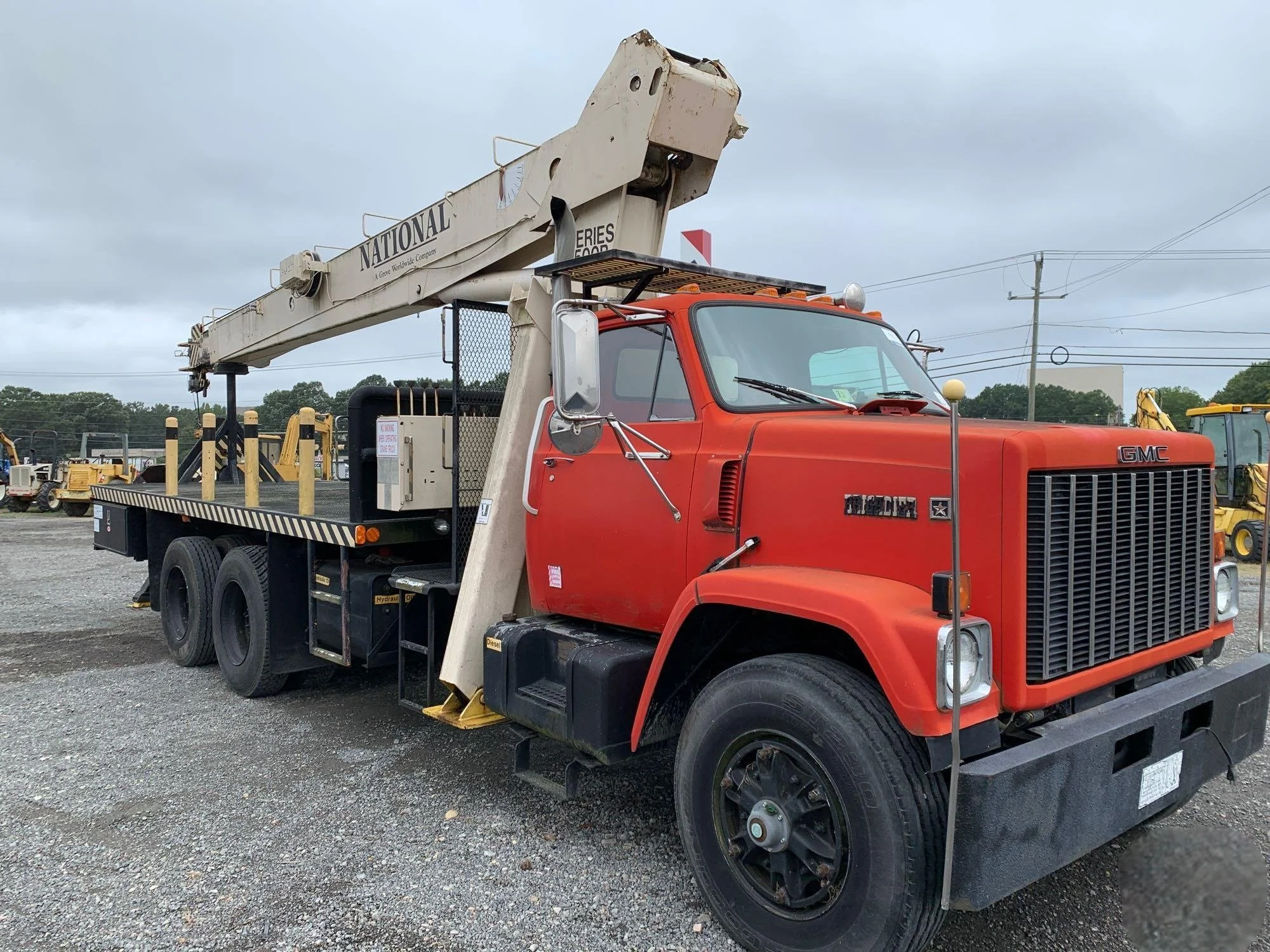
Nationwide Onsite Training
OSHA Fixed Cab Crane Training: personalized training for your company or yourself.
Crane Operator School at Partner Locations
Train your team quickly with flexible on-site or virtual company training. With our OSHA 1926. Fixed cab certification or qualifying training course.
Achieve certification or qualification at your own pace with our personalized training options.
When it comes to your career, our premier Fixed Cab Crane Training program is designed to ensure you have the knowledge and skills needed for success within the crane industry. When it comes to the field of Fixed cab crane operation, you will enjoy a lifetime of job security as you build on construction projects that shape the world. 3P Safety's comprehensive Fixed Cab Crane Training combines world-class training with our hands-on experience and industry-leading classroom instruction, ensuring you master the skills necessary to perform in the industry and achieve the required qualifications for Fixed cab crane operations. With industry-leading certifications like CCO, 3P Safety Fixed Cab Crane Training makes sure you have the skills and confidence to operate fixed cab cranes and make a significant change in the construction industry. Join us today and take your career and life to new heights.
Fixed Cab Crane Training Program Breakdown
Comprehensive Operator Certification & Safety Training – Available Nationwide
I. Introduction to Fixed Cab Crane Operations
The Fixed Cab Crane Training Program offered by 3P Safety is a nationally recognized, in-depth training curriculum tailored to develop certified, safety-conscious crane operators. The program integrates classroom theory with hands-on training and emphasizes critical safety protocols, regulatory compliance, and operational excellence.
Fixed cab cranes, typically used in construction, manufacturing, and infrastructure settings, feature a stationary operator cab that does not rotate with the crane’s upper structure. This configuration provides a simplified control layout and is ideal for repetitive lifts, limited-radius operations, and compact job sites.
Importance of Safety:
Due to the strength, weight capacity, and operational constraints of fixed cab cranes, safety is a top priority. Incorrect operation can result in serious injuries, equipment damage, or fatal incidents. This training program emphasizes OSHA compliance, proper rigging techniques, and communication protocols to minimize site risk.
Applications:
Trainees will explore various fixed cab crane types, such as truck-mounted cranes, rough terrain cranes, and small industrial cranes commonly found on job sites where mobility and full rotation are not primary concerns.
II. Legal and Safety Regulations
Understanding compliance and legal requirements is essential for operator success and site safety. This module includes:
OSHA Regulations (29 CFR 1910.180):
Operators will be trained on federal standards governing fixed cab crane use, focusing on certification, inspection, maintenance, and communication protocols.
ANSI/ASME Standards:
Detailed overview of ASME B30.5 (Mobile Cranes) and other relevant sections, including lift planning and operation of cranes with fixed operator stations.
State & Local Requirements:
Discussion on local licensing laws, operator ID card programs, and employer responsibilities across various jurisdictions.
Employer’s Duties:
Coverage of employer responsibilities, including providing qualified training, enforcing inspection procedures, and maintaining safe lifting operations.
III. Crane Components and Terminology
This module builds essential foundational knowledge of fixed cab crane systems:
Structural Components:
Boom systems (usually telescopic), jibs, counterweights, stationary cabs, outriggers, and turntables.
Mechanical Systems:
Powertrain systems, winches, hydraulic actuators, load indicators, and anti-two block devices.
Terminology:
Operators will be fluent in industry-specific terms such as load chart, boom length, load radius, gross vs. net capacity, center of gravity, and outrigger spread. Diagrams and component demonstrations are included.
IV. Pre-Operational Procedures
Safety begins before the crane is started. This section teaches:
Daily Pre-Use Inspections:
Step-by-step checks for hydraulics, wire ropes, hook safety latches, cab controls, tires/tracks, and stabilizers.
Hazard Identification:
Identifying and mitigating risks like overhead power lines, slope instability, confined areas, and high-traffic zones.
Proper Setup Techniques:
How to safely deploy outriggers, level the machine, barricade the work area, and verify load chart parameters.
Lift Planning Basics:
Students will learn to build and follow lift plans, including center of gravity analysis, load travel path planning, and rigging configuration.
V. Operational Procedures
This phase transitions students from theory to action:
Control Familiarization:
Training on foot pedals, joysticks, and switches used to control lift, boom extension, and slew functions from a stationary cab.
Basic Crane Maneuvers:
Instruction on proper hoisting, booming, and load handling techniques. Focus on precision, efficiency, and load stability within a limited swing arc.
Load Dynamics:
Education on effects of wind, shock loading, inertia, and radius changes on lifting operations.
Rigging Fundamentals:
Introduction to rigging hardware (slings, hooks, shackles), rigging angles, hitches, and safe load connections.
VI. Communication and Signaling
Effective communication ensures lift accuracy and safety:
Hand Signals:
Students will master OSHA/ANSI-compliant hand signals for lifting, lowering, swinging, and emergency stopping.
Radio Protocols:
Training in radio usage, including call-and-response methods, backup communication, and fail-safe protocols.
Crew Roles:
Emphasis on team communication between operator, signal person, and rigger. Real-time simulations reinforce the chain of command and jobsite coordination.
VII. Emergency Procedures
Operators must be prepared for the unexpected:
Crane Shutdown:
Procedures for stopping operations in the event of mechanical failure, structural compromise, or site evacuation.
Malfunctions:
How to respond to winch issues, hydraulic loss, brake failure, or electronic sensor malfunctions (e.g., LMI alerts).
Environmental Emergencies:
Site-specific plans for operation in high winds, lightning, rain, snow, or extreme temperatures.
VIII. Maintenance and Troubleshooting
Preventative maintenance is key to reliability:
Scheduled Maintenance:
Daily and periodic checks for boom lubrication, hydraulic fluid levels, wear points, and control system function.
Common Issues:
Troubleshooting faulty sensors, boom drift, slow winch response, or outrigger alarms.
Maintenance Records:
Instruction on documenting inspections, defects, service reports, and parts replacement cycles.
IX. Practical Training
Hands-on experience is vital to competency:
Field Operation:
Under direct supervision, students will operate fixed cab cranes, performing boom extension, lifts to radius, and complex pick-and-place scenarios.
Controlled Environments:
Practice in confined space settings, near-structure lifts, and work with blind spot obstructions.
Skill Progression:
From basic lifts to advanced operations with tag lines, center of gravity shifts, and multi-crane awareness.
X. Assessment and Evaluation
All operators must demonstrate skill and safety understanding:
Written Exam:
Covers fixed cab crane regulations, components, safety rules, load chart calculations, and communication standards.
Performance Test:
Live operation assessment including pre-use inspection, lifting various loads, and executing emergency shutdown protocols.
Certification:
Successful participants receive a Fixed Cab Crane Operator Certificate. 3P Safety offers renewal training every 3–5 years, per local/state regulations.
Train With Confidence, Operate With Safety
At 3P Safety, our Fixed Cab Crane Training is engineered for excellence. Whether you're new to crane operation or seeking recertification, we provide the knowledge, skills, and practical experience to help you lift with control, operate with discipline, and lead with safety.
Join our nationwide training program and become a certified fixed cab crane operator — ready to meet any challenge on today’s demanding job sites.
Payments Accepted
A little about us.
AT 3PSafety's. We strive to deliver the highest standard of quality training, staffing, and inspections with our fully certified team. We thoroughly vet every employee to ensure you receive the highest standards and service.
Contact Us
Phone: 252-229-5238
Email patrick.salazar@3psafety.net


